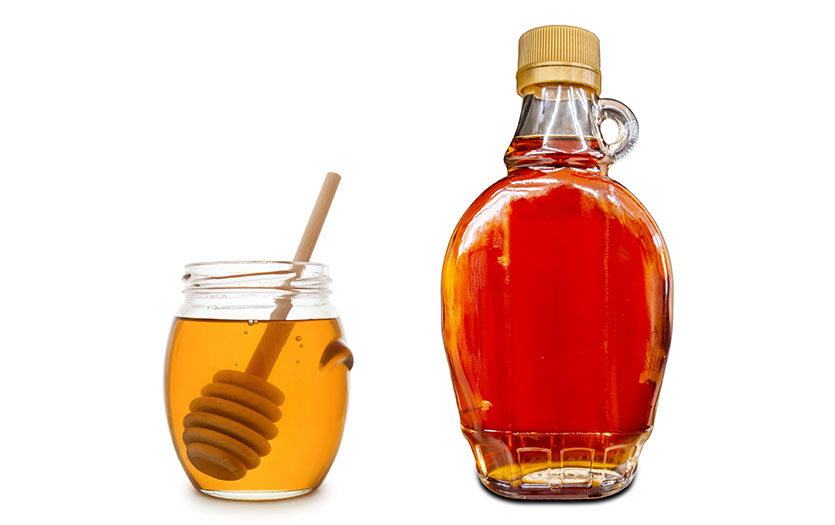
Many of us know the importance of consuming an array of vitamins and minerals, but getting them all in can be tricky. This is why many people turn to supplementation as a means of getting the maximum benefit. We asked Amanda Langan, RDN, to discuss the difference between getting these nutrients through food as opposed to getting them through supplements.
What are supplements?
Supplements are any item (typically not food) taken orally to enhance the diet in an effort to provide a health benefit. Supplements can contain a single ingredient, like vitamin C, or a combination of ingredients, such as a multivitamin or a protein powder.1 When a supplement contains vitamins or minerals it may be called a micronutrient.2
Are supplements the best way to get nutrients?
The 2015-2020 Dietary Guidelines for Americans recommend getting nutrition from whole foods versus supplements. This recommendation is aimed at increasing the consumption of fruits, vegetables and dairy; food groups that most Americans are lacking or are consuming in amounts lower than recommended.3 In addition to creating a more complete diet, these food groups contain fiber, antioxidants (phytonutrients) and micronutrients (vitamins and minerals) that work synergistically to enhance absorption, allowing the body to use the nutrients more easily. This same effect is not seen in supplements because they are lacking the micronutrient combination found in the whole food.4,5,6 Consider a whole orange versus a vitamin C supplement. The supplement and the orange contain vitamin C but the orange also has 3g of fiber, a bit of vitamin A and calcium, as well as 1g of protein.7
Who needs supplements?
If you are eating a relatively balanced diet with fruits, vegetables and whole grains you likely do not need a supplement. If you have a medically diagnosed deficiency or you are unable to eat a balanced diet, a micronutrient supplement may be beneficial. It is important to discuss any new supplements with your dietitian, pharmacist or doctor to be sure there are no nutrient-nutrient interactions or nutrient-medication interactions.8
Is it possible to overdo it with supplements?
There is a risk of toxicity with all vitamins and minerals taken in excess. If you take multiple supplements (stacking) while eating a relatively balanced diet the risk of toxicity increases.8 The dose and type of supplement are also important. Iron can build up in the body, especially if you have hemochromatosis. Vitamin A in the form of beta carotene is absorbed differently than vitamin A from retinol, and high doses of water-soluble vitamin B6 can lead to neuropathy. While excess water-soluble vitamins (B and C) are typically excreted in the urine, excess fat-soluble vitamins (A, D, E and K) and minerals (calcium, iron, zinc, etc.) can build up in your body over time leading to toxicity.
In addition to toxicity risks, supplements are not regulated by the FDA (Food and Drug Administration) the same way food is. Manufacturers are not required to have their products tested before they go to market and they are responsible for reporting any adverse side effects from their own products. This means that you could be paying for something that is not actually in the product or getting something that is not on the label.1,8
To avoid the risks, stick to colorful fruits and vegetables, whole grains, lean proteins, low-fat dairy, and heart-healthy fats. You will likely feel full before you can ever overeat any individual micronutrient.
Sources
- https://www.fda.gov/consumers/consumer-updates/fda-101-dietary-supplements
- https://www.eatrightpro.org/practice/practice-resources/international-nutrition-pilot-project/how-to-explain-basic-nutrition-concepts
- https://health.gov/dietaryguidelines/2015/guidelines/
- https://www.mayoclinic.org/healthy-lifestyle/nutrition-and-healthy-eating/in-depth/supplements/art-20044894
- https://www.health.harvard.edu/staying-healthy/should-you-get-your-nutrients-from-food-or-from-supplements
- https://www.fruitsandveggiesmorematters.org/what-are-phytochemicals
- https://www.fruitsandveggiesmorematters.org/orange
- Position of the Academy of Nutrition and Dietetics: Micronutrient Supplementation, Journal of the Academy of Nutrition and Dietetics, 2018;118(11):2162-2173.




